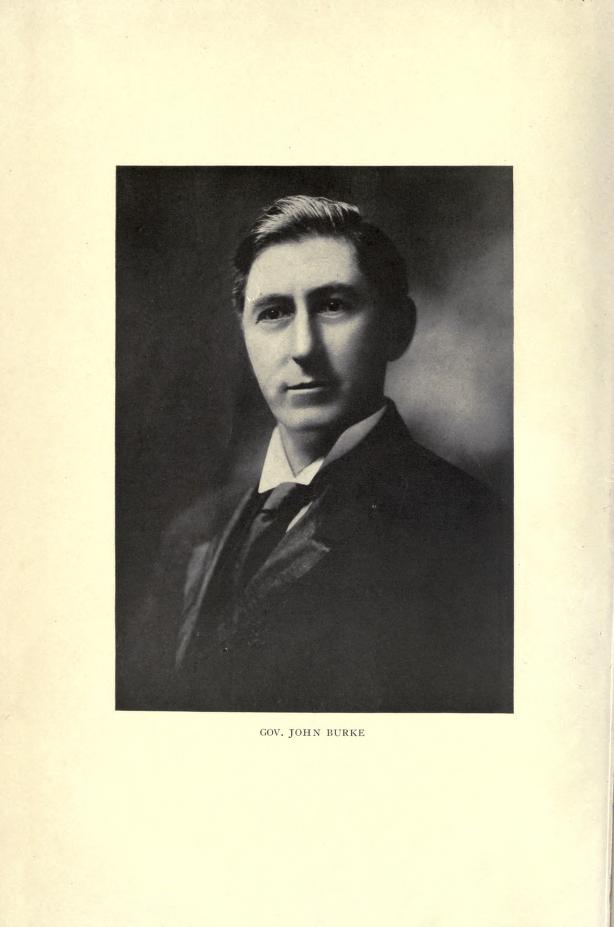Governor John Burke of North Dakota was born on February 25, 1859, in Keokuk County, Iowa. Educated at Iowa State University’s law department, he graduated in 1886 and began practicing law in Des Moines. In 1888, he moved to Rolette County, North Dakota, where his legal acumen earned him a strong reputation. Burke married Mary Kane in 1891, and they had three children: Elizabeth, Thomas, and Marian. He served as county judge, state legislator, and was elected governor in 1906 and 1908. Known for his integrity and oratory skills, Burke significantly influenced North Dakota’s Democratic Party.
Governor John Burke, of North Dakota, was born February 25, 1859, in Keokuk county, Iowa, near where the town of Harper was subsequently located. He was educated in the common schools and grew to manhood on the farm. He entered the law department of the Iowa State University as a student in September, 1884, and graduated therefrom in June, 1886. He commenced the practice of law in Des Moines, Iowa, in the fall of 1886, entering into partnership with his brother, Judge Thomas C. Burke, now of Baker City, Oregon. Two years later, feeling that the Northwest offered greater inducements to a young lawyer, he left his native state and located in Rolette county, North Dakota.
Unflagging industry and uncompromising honesty, coupled with brilliancy of mind and devotion to the highest professional ideals, soon brought him clients from all parts of the young state. He soon acquired a reputation as a great trial lawyer, and his splendid success in hundreds of forensic battles, disclose the true foundation for his reputation. He afterwards removed to Devils Lake, from which place he could more easily reach the different parts where his services were in demand.
On August 22, 1891, he was married to Miss Mary Kane, of Waukesha, Wisconsin. They have three children, Elizabeth, Thomas and Marian. Mrs. Burke is a bright and accomplished lady and her wifely counsel and companionship has contributed a great deal to her husband’s advancement and success.
Governor Burke served two years as county judge of Rolette county. He was elected to the state legislature, a member of the lower house, in 1891, and to the senate in 1892, serving in the latter body in 1893 and 1895. He was honored by the Democratic party with the nomination for attorney general in 1894, for congress in 1896, and for district judge in 1900. In 1906 he was called upon to accept the nomination for governor, and while his opponent had been elected two years before by a plurality of 31,282, he was elected by a large plurality — a worthy tribute to an honest, clean, fearless man.
In 1908 he was unanimously renominated by his party, and the satisfaction of the voters with his administration was proven by his reelection.
Governor Burke is considered one of the great political speakers of the day. His two campaigns for the governorship were without parallel in political annals of the Northwest and established his reputation as one of the greatest and most effective campaign orators of the country. He is one of the leading and potent factors of the Democratic party of North Dakota. He is a man possessed of so many sterling qualities that he has made a host of friends throughout the state, regardless of political affiliations. His administration has been clear and clean cut as well as business-like. Many changes have been effected and he enjoys the confidence and respect of the people of the state.
Source
C.F. Cooper & Company, History of the Red River Valley, Past And Present: Including an Account of the Counties, Cities, Towns And Villages of the Valley From the Time of Their First Settlement And Formation, volumes 1-2; Grand Forks: Herald printing company, 1909.

